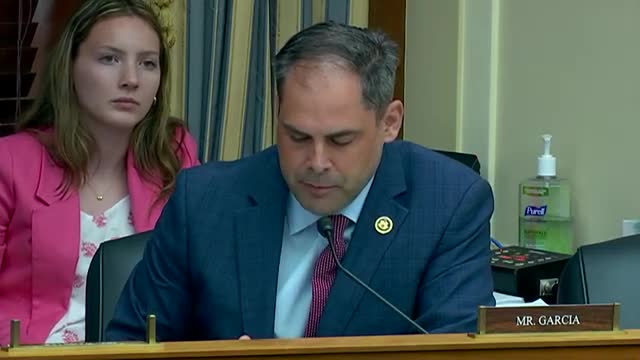Energy Secretary outlines bold vision for nuclear independence
June 27, 2024 | Science, Space, and Technology: House Committee, Standing Committees - House & Senate, Congressional Hearings Compilation

This article was created by AI summarizing key points discussed. AI makes mistakes, so for full details and context, please refer to the video of the full meeting. Please report any errors so we can fix them. Report an error »

During a recent government meeting, discussions centered on the future of nuclear energy and clean energy strategies in the United States. A key focus was on developing a comprehensive nuclear waste management plan that would allow for the sustainable use of nuclear resources while addressing the byproducts and waste generated.
One participant emphasized the need for a long-term strategy that transcends political fluctuations, advocating for a pragmatic approach rooted in science and innovation. They highlighted the importance of research and development, particularly through national laboratories, and called for increased resources to support these initiatives. The participant noted that significant progress has been made in recent years, including a 4% reduction in emissions alongside robust GDP growth.
The conversation also touched on the administration's clean energy industrial strategy, which aims to bolster domestic manufacturing of clean energy products such as electric vehicles, batteries, and solar panels. This strategy is expected to create hundreds of thousands of jobs across the country, contributing to energy independence without overburdening taxpayers.
However, concerns were raised about the effectiveness of solar energy in states like California, where energy reliability and affordability have become pressing issues. One participant pointed out that despite investments in solar, the state is facing challenges in maintaining energy supply, leading to a shift of energy users out of the state. This sentiment was echoed with examples from international contexts, illustrating the competitive disadvantage faced by U.S. industries due to higher energy costs.
As the meeting concluded, the need for a clear, actionable long-term framework for energy independence and sustainability was underscored, with calls for transparency and accessibility of the proposed strategies to ensure informed discussions moving forward.
One participant emphasized the need for a long-term strategy that transcends political fluctuations, advocating for a pragmatic approach rooted in science and innovation. They highlighted the importance of research and development, particularly through national laboratories, and called for increased resources to support these initiatives. The participant noted that significant progress has been made in recent years, including a 4% reduction in emissions alongside robust GDP growth.
The conversation also touched on the administration's clean energy industrial strategy, which aims to bolster domestic manufacturing of clean energy products such as electric vehicles, batteries, and solar panels. This strategy is expected to create hundreds of thousands of jobs across the country, contributing to energy independence without overburdening taxpayers.
However, concerns were raised about the effectiveness of solar energy in states like California, where energy reliability and affordability have become pressing issues. One participant pointed out that despite investments in solar, the state is facing challenges in maintaining energy supply, leading to a shift of energy users out of the state. This sentiment was echoed with examples from international contexts, illustrating the competitive disadvantage faced by U.S. industries due to higher energy costs.
As the meeting concluded, the need for a clear, actionable long-term framework for energy independence and sustainability was underscored, with calls for transparency and accessibility of the proposed strategies to ensure informed discussions moving forward.
View full meeting
This article is based on a recent meeting—watch the full video and explore the complete transcript for deeper insights into the discussion.
View full meeting